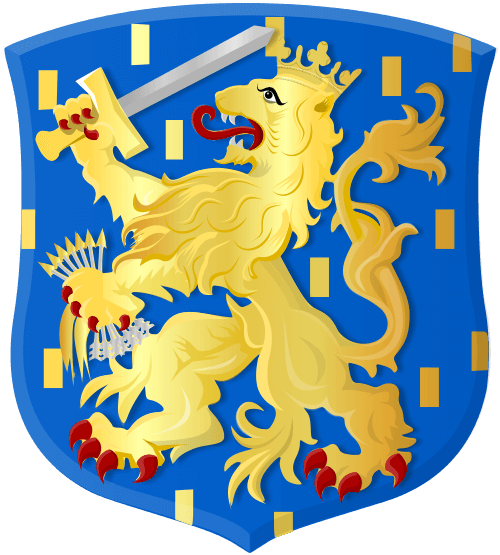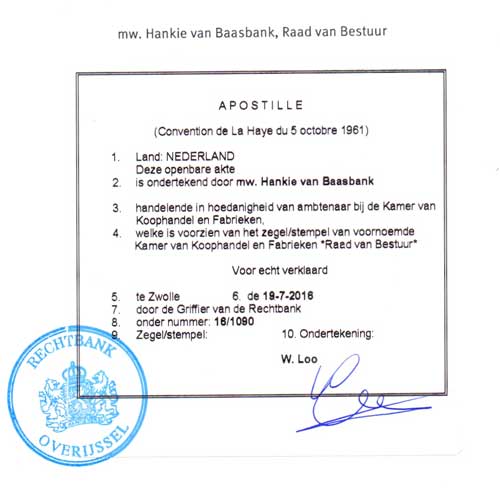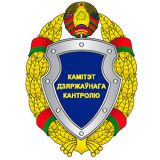
Schmidt & Schmidt компаниясы Нидерландта берілген құжаттарды заңдандыру – апостильдеу қызметтерін ұсынады.
Нидерландта берілген құжаттарды Қазақстан Республикасының соттарына немесе өзге де мемлекеттік органдарына ұсыну үшін оларды заңдандыру рәсімінен өткізу қажет, соның нәтижесінде мұндай құжаттар ҚР аумағында заңды күшке ие болады.
Нидерландтар 1961 жылғы 5 қазандағы Гаага конвенциясының қатысушысы болып табылады, ол құжаттарды апостиль қою арқылы жеңілдетілген тәртіппен заңдандыруға мүмкіндік береді. Нидерландтар Гаага конвенциясына 1965 жылы қосылды.
Нидерландта құжаттарға апостиль қоюға аудандық соттар уәкілетті. Бұл ретте құжаттың Нидерландтың қай өңірінде берілгені маңызды емес, оны кез келген аймақтық сотта апостильдеуге болады.
Аймақтық соттар сондай-ақ берілген барлық апостильдердің тізілімін жүргізеді. Апостильдің түпнұсқалығына қатысты күмән туындаған жағдайда тиісті соттың хатшылығына жүгіну қажет.
Нидерландта нидерланд, неміс, француз және ағылшын тілдерінде жасалған құжаттар аудармасыз апостильденуі мүмкін. Басқа тілдердегі құжаттар үшін нотариалды аударма талап етіледі.
Голландиядағы апостиль нидерланд тілінде рәсімделетін төртбұрышты мөр болып табылады. Онда міндетті түрде «Apostille» атауы және француз тілінде 1961 жылғы Гаага конвенциясына сілтеме (Convention de La Haye du 5 octobre 1961) көрсетіледі.

Нидерландта апостильмен куәландырылуы мүмкін
- Нидерландтардың сауда тізілімінен алынған үзінділер
- Нотариус берген немесе куәландырған құжаттар
- Нидерланд соттары берген құжаттар: үкімдер және сот шешімдері
- Сот аудармашысы жасаған аудармалар
- Нидерланд билік органдары берген ресми құжаттар
- Білім беру құжаттары: аттестаттар, сертификаттар және дипломдар
- Сенімхаттар, өсиеттер, сыйға беру құжаттары
- Мемлекеттік үлгідегі басқа құжаттар
Апостильге жатпайтын құжаттар
- Коммерциялық келісімшарттар
- Шоттар және инвойстар
- Кедендік, дипломатиялық, консулдық құжаттар
- Паспорттар
Сонымен қатар, бізде құжаттарды нидерланд тілінен қазақ немесе орыс тіліне нотариалды аударуға тапсырыс беруге болады.
Нидерланд құжаттарын консулдық заңдастыру
Егер құжат Гаага конвенциясын мойындамайтын елде, мысалы БАӘ немесе тізімге кірмейтін басқа елдерде қолданылатын болса, онда ол консулдық заңдастыруға жатады. Апостильді қабылдайтын және пайдаланатын елдердің толық тізімін осы жерде қарауға болады.
Консулдық заңдастыру — бұл құжаттардың заңдылығын тану рәсімі, апостильге қарағанда көпсатылы, ұзақ және қымбат процесс.
Консулдық заңдастыру процесінде құжат алдымен Нидерланд Сыртқы істер министрлігінде, кейін тағайындалған елдің консулдығында куәландырылатын болады. Көбінесе құжатты сол елдің мемлекеттік тіліне сертификатталған аудармашы арқылы аудару талап етіледі.
Маңызды: құжат тек консулдық мөрі тұрған елдің аумағында заңды күшке ие болады және басқа елдерде қолданылмайды.
Апостильден айырмашылығы, консулдық заңдастыру мемлекеттік үлгідегі және нотариалды құжаттарға ғана емес, коммерциялық құжаттарға да жүргізілуі мүмкін, егер олар сыртқы сауда палатасында куәландырылса.
Консулдық заңдастырудың қолданылу мерзімі әдетте шектелмейді, бірақ құжаттардың өздерінің жарамдылық мерзіміне шектеулер қойылуы мүмкін.
Нидерландта берілген білім беру құжаттары, мысалы дипломдар, аттестаттар немесе сертификаттар, Қазақстанда заңды күшке ие емес. Сондықтан ҚР оқу орындарының магистратурасына немесе аспирантурасында оқуға түскенде апостиль қою қажет болуы мүмкін. Көптеген коммерциялық ұйымдарда жұмысқа тұру кезінде білім беру құжаттарына апостиль қою қажет емес, тек егер медициналық, білім беру, құрылыс немесе басқа арнайы қызметке рұқсат алу қажет болса.
Кейде кейбір лауазымдарға жұмысқа орналасу үшін қосымша рәсім – біліктілікті тану немесе нострификациядан өту қажет болады. Апостиль тек диплом берілгенін куәландыратынын және біліктілікті танудың тек бір қадамы екенін есте ұстау маңызды.
Нидерландта білім беру құжаттарын легализациялау тәртібі Қазақстандағы тәртіптен едәуір өзгеше. Легализация процесінде диплом алдымен Білім беру атқарушы агенттігінде рәсімделеді. Содан кейін дипломға апостиль қойылады.
Егер құжат Гаага конвенциясын мойындамайтын елде қолданылатын болса, онда ол консулдық заңдастыруға жатады, бұл күрделірек және көп уақыт талап ететін процедура болып табылады.
Апостиль мен консулдық заңдастыру арасындағы айырмашылықтар
Апостиль мен консулдық заңдастырудың ортақ белгісі – олар ресми құжаттың басқа елдің мекемелерінде қолданылуы үшін шынайылығын растайды. Алайда олардың арасында елеулі айырмашылықтар бар.
| Апостиль | Консулдық заңдастыру | |
|---|---|---|
| Шындық | Тек Гаага конвенциясына қатысушы елдер арасында ғана қолданылуы мүмкін. | Гаага конвенциясына қатыспайтын немесе қатысушы еместігінен бір немесе екі ел арасында, немесе бір тарап екінші тараптың қосылуына қарсы болған жағдайда қолданылады. |
| Алу қиындығы | Орташа. Апостиль алу үшін құжат берілген елдің уәкілетті органыға жүгіну қажет. | Жоғары. Консулдық заңдастыру үшін құжат берілген елдің әртүрлі органдарына және консулдықтарға жүгіну қажет |
| Алдын ала растау | Қажет емес. | Қажет. Құжатты берген органнан алдын ала растау қажет. |
| Мақсат елінің консулдығында заңдастыру | Мақсат елінің консулдығына жүгіну қажет емес. | Заңдастырудың соңғы кезеңі әдетте құжат берілген елде мақсат елінің консулдығында өтеді. |
Нотариалды аударма
Көп жағдайда мемлекеттік органдар құжаттарды тек мемлекеттік тілде жасалған жағдайда ғана қабылдайды. Сондықтан апостильмен куәландырылған және шет тілінде жасалған шетелдік құжаттарды тағайындалған елде пайдалану үшін оларды аудару және аударманы нотариалды түрде куәландыру қажет. Бізде құжаттарды нидерланд тілінен қазақ немесе орыс тіліне нотариалды аударуға тапсырыс беруге болады.
Аударма апостильмен куәландырылуы тиіс пе?
Бір елде беріліп, басқа елде пайдалануға арналған кез келген шетелдік құжат легализациялануы тиіс. Маңызды: Нидерландыда жасалған және апостиль қойылған құжаттың орыс тіліне аудармасы бәрібір шетелдік құжат мәртебесін сақтайды және оған апостиль қою қажет. Сондықтан көптеген органдар Нидерландта куәландырылған аудармаларды қабылдамауы мүмкін. Мұндай жағдайдың алдын алу үшін құжатты пайдаланатын елде аударма жасау ұсынылады.
Нидерландта құжаттарды талап ету
Азаматтық хал актілерінің құжаттары жиі жоғалып кетуі немесе бүлінуі мүмкін, сондай-ақ құжаттардың өзекті көшірмелерін алу қажет болуы мүмкін. Мұндай жағдайда құжаттардың дубликаттарын истребование ету қажет. Бұл рәсімде Нидерландыдан кеткен адамдар жиі қиындықтарға тап болады. Біздің сервис Нидерландта құжаттарды қашықтан талап етуге мүмкіндік береді және құжатты әлемнің кез келген нүктесіне курьерлік жеткізуді ұйымдастыра алады.
























































